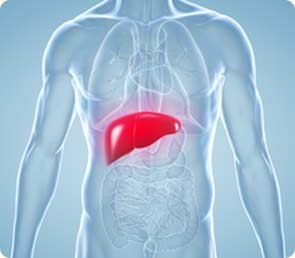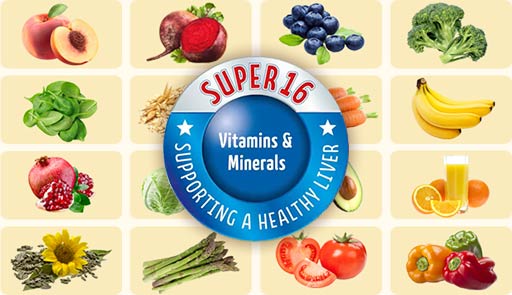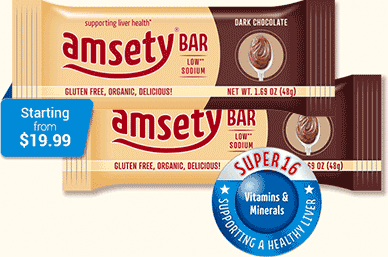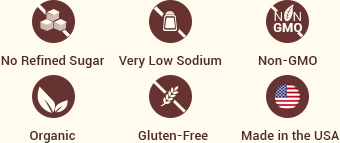
Only available here!

Read More About Cirrhosis



Have you been diagnosed with cirrhosis? You are not alone. Before learning about cirrhosis, it’s important to understand how the liver works.
The liver performs over 500 functions in our bodies. Everything we eat, drink and breathe goes through the liver. Toxins such as junk food, alcohol, and cigarettes negatively impact liver health.
When the liver is severely damaged, scar tissue forms. New cells do not regenerate because of scar tissue. This is called cirrhosis.
Cirrhosis prevents the liver from functioning properly. Scar tissue makes blood flow more difficult and slows the liver’s processing of hormones, drugs, toxins, and nutrients.
There is no cure for cirrhosis because scar tissue cannot be repaired.


Early symptoms of cirrhosis may be mild and easy to ignore. The following are common symptoms:
Going to the doctor for a physical exam can help you find out more information. Your doctor may recommend a blood or liver function test to diagnose cirrhosis.

The most common causes of cirrhosis are alcohol abuse and an unhealthy diet. Some other risk factors include:
Although there is no treatment for cirrhosis, maintaining healthy lifestyle habits is extremely effective in its prevention. Find out more about a healthy liver diet.

Healthy fats
Omega 3 and monounsaturated fats improve your liver's ability to produce glucose and reduce fat. Nuts, seeds, and avocado are excellent sources.
Natural vitamins and minerals
A diet rich in vitamins and minerals helps the liver regenerate cells. Green leafy vegetables are the most nutrient dense food.
Low calorie foods
Reducing your calories will lead to a slimmer body and make it easier for the liver to function. Fruits, vegetables, and beans are low in calories and high in fiber, so you will stay full for longer.
Protein
Protein is an important part of a well-balanced diet. Choose lean protein sources with sources with low fat like beans, legumes, and fish.
Antioxidants
If nutrients aren't broken down properly, more fat develops in the liver. Antioxidants help break down nutrients. Berries, and green tea are great sources.
Unhealthy fats
Trans and saturated fats contribute to a fatty liver. Eat less meat and dairy and limit your use of oil in cooking. Hydrogenated vegetable oil is particularly harmful and linked to cancer.
GMOs
Genetically modified foods contain toxins that are hard on the liver. Common sources are meat and dairy and processed foods that contain soy and corn like sugary breakfast cereals.
Simple carbs
Simple carbohydrates spike blood sugar levels because they are processed by the body very quickly. Avoid white bread, candy, and baked goods.
Salt
Sodium raises blood pressure, restricts blood flow, and inhibits healthy kidney functioning. Pay attention to how much salt is in your food by reading nutritional information on packages and cooking at home. Avoid cured meats.
Alcohol
Processing alcohol damages your liver. If your cirrhosis is due to alcoholic fatty liver diseases, do not drink any type of alcohol. For other conditions, drink infrequently and never binge.



Naturally supports your liver health
Includes essential vitamins and minerals for liver health
Balances your daily diet
Supports daily nutrient intake
Amsety's Super 16 Vitamin and Mineral Mix™ is created by leading US liver specialists and food engineers to provide the essential vitamins and minerals for optimal liver health.
It's important to maintain a healthy, whole foods diet. That's why our unique blend is carefully designed to include the properties of natural foods that best support healthy liver functions.
The Super 16 Vitamin and Mineral Mix™ includes a carrot's vitamin A, an orange's vitamin C, and spinach's vitamin E to promote the 16 most beneficial plant-based vitamins and minerals for liver health.

Amsety has introduced the first nutrition bar including the Super 16 Vitamin & Mineral Mix™. Amsety Bars were created specifically to meet the dietary requirements of individuals with liver conditions and support liver health. Amsety Bars are only available online. Visit Amsety's online shop.

Includes the Super 16™ Mix of essential vitamins and minerals for liver health, many of which are difficult to find in regular meals or even supplements.
Helps liver patients manage their daily diets due to healthy and nutrient dense formula.
Provides sufficient energy intake for liver patients and supports oral intake among patients with poor appetites.
A healthy on-the-go snack that helps liver patients manage a complicated lifestyle resulting from liver disease.




Have you been diagnosed with cirrhosis? You are not alone. Before learning about cirrhosis, it’s important to understand how the liver works.
The liver performs over 500 functions in our bodies. Everything we eat, drink and breathe goes through the liver. Toxins such as junk food, alcohol, and cigarettes negatively impact liver health.
When the liver is severely damaged, scar tissue forms. New cells do not regenerate because of scar tissue. This is called cirrhosis.
Cirrhosis prevents the liver from functioning properly. Scar tissue makes blood flow more difficult and slows the liver’s processing of hormones, drugs, toxins, and nutrients.
There is no cure for cirrhosis because scar tissue cannot be repaired.


Early symptoms of cirrhosis may be mild and easy to ignore. The following are common symptoms:
Going to the doctor for a physical exam can help you find out more information. Your doctor may recommend a blood or liver function test to diagnose cirrhosis.

The most common causes of cirrhosis are alcohol abuse and an unhealthy diet. Some other risk factors include:
Although there is no treatment for cirrhosis, maintaining healthy lifestyle habits is extremely effective in its prevention. Find out more about a healthy liver diet.

Healthy fats
Omega 3 and monounsaturated fats improve your liver's ability to produce glucose and reduce fat. Nuts, seeds, and avocado are excellent sources.
Unhealthy fats
Trans and saturated fats contribute to a fatty liver. Eat less meat and dairy and limit your use of oil in cooking. Hydrogenated vegetable oil is particularly harmful and linked to cancer.
Natural vitamins and minerals
A diet rich in vitamins and minerals helps the liver regenerate cells. Green leafy vegetables are the most nutrient dense food.
GMOs
Genetically modified foods contain toxins that are hard on the liver. Common sources are meat and dairy and processed foods that contain soy and corn like sugary breakfast cereals.
Low calorie foods
Reducing your calories will lead to a slimmer body and make it easier for the liver to function. Fruits, vegetables, and beans are low in calories and high in fiber, so you will stay full for longer.
Simple carbs
Simple carbohydrates spike blood sugar levels because they are processed by the body very quickly. Avoid white bread, candy, and baked goods.
Protein
Protein is an important part of a well-balanced diet. Choose lean protein sources with sources with low fat like beans, legumes, and fish.
Salt
Sodium raises blood pressure, restricts blood flow, and inhibits healthy kidney functioning. Pay attention to how much salt is in your food by reading nutritional information on packages and cooking at home. Avoid cured meats.
Antioxidants
If nutrients aren't broken down properly, more fat develops in the liver. Antioxidants help break down nutrients. Berries, and green tea are great sources.
Alcohol
Processing alcohol damages your liver. If your cirrhosis is due to alcoholic fatty liver diseases, do not drink any type of alcohol. For other conditions, drink infrequently and never binge.



Naturally supports your liver health
Includes essential vitamins and minerals for liver health
Balances your daily diet
Supports daily nutrient intake
Amsety's Super 16 Vitamin and Mineral Mix™ is created by leading US liver specialists and food engineers to provide the essential vitamins and minerals for optimal liver health.
It's important to maintain a healthy, whole foods diet. That's why our unique blend is carefully designed to include the properties of natural foods that best support healthy liver functions.
The Super 16 Vitamin and Mineral Mix™ includes a carrot's vitamin A, an orange's vitamin C, and spinach's vitamin E to promote the 16 most beneficial plant-based vitamins and minerals for liver health.

Amsety has introduced the first nutrition bar including the Super 16 Vitamin & Mineral Mix™. Amsety Bars were created specifically to meet the dietary requirements of individuals with liver conditions and support liver health. Amsety Bars are only available online. Visit Amsety's online shop.

Sources:
The Epidemiology of Cirrhosis in the United States: A Population-based Study - Scaglione S, Kliethermes S, Cao G, Shoham D, Durazo R, Luke A, Volk ML (J Clin Gastroenterol. 2015 Sep), US Department of Veteran Affairs, Webmd.com, Livestrong.com, Mayo Clinic, Healthcommunities.com, Patient.info, Hepcnet.net.
Sources:
The Epidemiology of Cirrhosis in the United States: A Population-based Study - Scaglione S, Kliethermes S, Cao G, Shoham D, Durazo R, Luke A, Volk ML (J Clin Gastroenterol. 2015 Sep), US Department of Veteran Affairs, Webmd.com, Livestrong.com, Mayo Clinic, Healthcommunities.com, Patient.info, Hepcnet.net.
Back to top